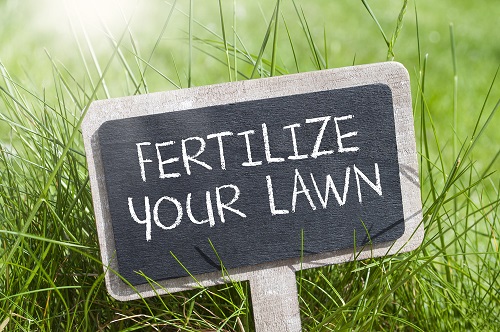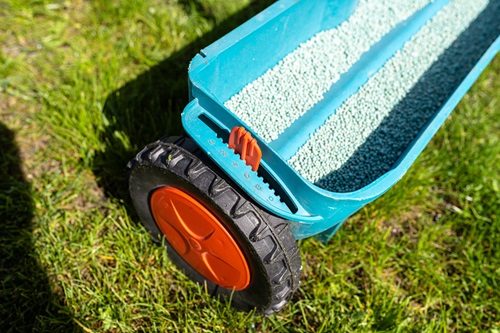
Maintaining a beautiful lawn is a year-round commitment, but don’t let that intimidate you. In this straightforward guide, we’ll walk you through the essential lawn care tasks for every season.
Whether you’re a seasoned gardener or new to lawn care, these easy-to-follow tips will help you keep your lawn healthy and vibrant. If the idea of tackling all this on your own seems overwhelming, don’t worry; professional lawn care services like Conners Lawn Care, recommended by Myrtle Beach Home Services, are here to help.
Year Round Lawn Care Tips
Fall (September, October, November)
Fall is the season to prepare your lawn for the winter ahead.
Fertilize: Give your cool-season grass a boost with the nutrients it needs to thrive during the dormant winter months. This promotes robust root growth.
Mow short: As late fall approaches, adjust your mower to cut your grass 1.5-2 inches shorter than usual. This simple step can prevent issues like snow mold and reduce the chances of fallen leaves matting down shorter grass.
Patch/seed: Repair any thin or bare areas on your lawn that may have developed during the summer. First, prepare the soil by removing dead grass and debris. Then, spread suitable grass seed and protect it with a thin layer of straw. Keep the newly seeded area consistently moist until the grass reaches about an inch in height.
Winter (December, January, February)
Though most lawns go dormant during winter, they still need some care.
Limit foot traffic: Avoid walking on your dormant lawn, as doing so can compact the soil and harm the grass. Also, refrain from parking vehicles or placing heavy objects on it.
Melt ice carefully: If your lawn is covered in ice, take care when de-icing it. Some ice-melting products are specifically designed for use on lawns. Avoid products like rock salt, which can damage your grass.
Spring (March, April, May)
Spring brings your lawn out of dormancy and into a period of rapid growth.
Clean up your yard: Start by raking up fallen leaves, dead grass, and debris. This clears the way for other essential tasks.
Test your soil: Healthy lawns begin with healthy soil. Spring is the ideal time to test your soil’s nutrient levels and pH. Knowing your soil’s condition will guide your fertilization efforts. You can use an at-home soil testing kit or consult your local cooperative extension, nursery, or university for professional testing.
Maintain your mower: With winter over, it’s time to get your lawn mower ready for regular use. Sharpen the mower blades for clean cuts, replace the air filter, and check the spark plug. Ensure you have fresh gas to fuel your mower.
Aerate: Lawn aeration is a process that relieves soil compaction by creating holes in your lawn. This opens up pathways for water, air, and nutrients to reach the grassroots. Consider aerating your lawn at least once a year, or more if your lawn experiences heavy foot traffic or vehicle parking.
Core aerators, machines that remove soil cores about 2-3 inches deep, are recommended. Leave the soil cores on the surface to decompose naturally and enrich the soil.
Dethatch: Thatch is the layer of organic matter that accumulates between the soil and the growing grass. While a thin thatch layer can be beneficial by insulating grassroots and retaining moisture, a layer thicker than ½ inch can impede the flow of air, water, and nutrients.
In spring, check your lawn for excessive thatch by digging up a small section with a sharp spade. If you find more than ½ inch of thatch, use a dethatching rake to lift and break it up.
Fertilize: If you have cool-season grass, aim to fertilize in early spring; for warm-season grass, you can wait until mid-to-late spring. Fertilize when your grass enters its most active growth phase. Opt for a slow-release fertilizer for better long-term results.
While fast-release fertilizers provide quick growth, they can harm your lawn over time. If you prefer an organic approach, consider natural fertilizers like blood meal and guano. They may be more expensive but yield greener, thicker grass over time.
Apply pre-emergents: To prevent weeds like crabgrass from invading your lawn, apply pre-emergent herbicide when the soil reaches 58 degrees Fahrenheit.
Summer brings heat, which can be challenging for lawns. However, with some care, your lawn can thrive.
Mow grass high: Adjust your mower to its highest or second-highest setting during the summer months. Cutting your grass higher than usual promotes stronger, deeper grassroots, making your lawn more resilient against weeds. Follow the recommended height for your specific grass type, and avoid cutting more than one-third of the grass blade each time you mow.
Treatment for grubs: They are c-shaped larvae of Japanese beetles that can damage grassroots and create dead patches in your lawn if their population becomes excessive. To determine if you have a grub issue, dig up a square foot of sod and inspect the quantity. If you find fewer than 10 grubs, there’s no need to worry.
If the population exceeds this threshold, consider applying chemical treatment or organic solutions like beneficial nematodes or milky spores. Keep in mind that natural solutions may take longer to show results, probably up to three years.
Control weeds: Summer is the time to address any annual and perennial weeds that have sprouted. Use post-emergent herbicides, selecting either selective or non-selective products based on the type of weed you’re dealing with. Always follow the herbicide’s instructions carefully.
Talk To The Experts
Maintaining a lush, healthy lawn throughout the year doesn’t have to be complex. By following these simple seasonal Myrtle Beach lawn care guidelines, you can enjoy a vibrant lawn that enhances your outdoor space.
If you’re concerned about the workload, remember that professional lawn care services like Conners Lawn Care are available to assist with essential tasks such as aeration, fertilization, weed control, and grub control. Achieving a beautiful lawn is well within your reach!
Call Conner’s Lawn Care Service now and let our team take care of your lawn all year round.
Conner’s Lawn Care Service
Myrtle Beach, SC
843-504-4901
http://connerslawncare.com/

